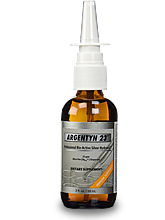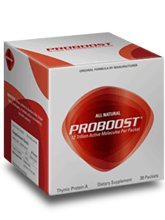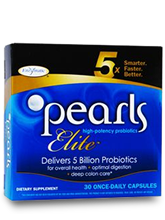Chronic Sinusitis - Actually a Yeast Infection
Antibiotics turn short-term sinus infections into chronic ones. To get to the root of sinus infections, and eliminate them, address the underlying fungal/candida infections. In addition, as sinus infections likely exist in what are called "Biofilms," oral antibiotics don't work, but special sprays can be very effective.
Although we have discussed some unusual viral and bacterial infections associated with the immune dysfunction of CFS/FMS, these illnesses are also associated with more of the day-to-day variety of infections. These include chronic sinusitis. In today's article we will talk about how to address chronic sinusitis—whether or not you have CFS/FMS.
We have known for years that chronic sinusitis responds poorly to antibiotics, and now experts are recommending against antibiotics even for acute sinusitis (see "Antibiotics Useless for Sinus Infections"). Nonetheless, this is all that many doctors give—in part because they are not aware of alternatives. Sinusitis can't be ignored though, and 2 new studies this week (see Sinus Surgery in Fibromyalgia (FMS) and Chronic Fatigue) showed that sinus surgery helps recovery from CFS. The good news is that we can get the same benefits without surgery—and the improvements will be more persistent!
As chronic sinusitis is predominantly caused by underlying yeast/fungal and biofilm infections, they are resistant to antibiotics by mouth, but can be effectively addressed with antifungals and nose sprays.
How Do Fungal Infections Cause Sinusitis?
These infections cause a stuffy nose, eventually causing the nasal passages to swell shut. In the body, any time something gets blocked (e.g., an appendix, gallbladder, etc.), it results in a secondary bacterial infection—and the sinuses are no exception. When this happens, your nasal mucus turns yellow-green, and you go to the doctor in pain. She or he then gives you an antibiotic, which knocks out the bacterial infection and sometimes leaves you feeling better. Unfortunately, the antibiotic worsens the underlying yeast infection in your nose, causing more swelling and blockages and therefore more attacks of bacterial infections. This is why sinusitis in the U.S. usually becomes chronic. An interesting study reported in the Mayo Clinic Proceedings supports this thought.1 The report in the Mayo Clinic Proceedings noted that previously "fungus allergy was thought to be involved in less than 10 percent of cases... our studies indicate, in fact, fungus is likely the cause of nearly all of these problems and that it is not an allergic reaction but an immune reaction."1 In the study, researchers found that most people with chronic sinus infections had fungal growth in their sinuses. This research is interesting because more and more studies are showing that addressing chronic sinusitis with antibiotics doesn't really do much and that shorter courses of therapy work just as well as the long courses. I find that conservative therapies (e.g., nasal rinses) are more effective than antibiotics for chronic sinusitis—but of course not enough by themselves.
In my experience, sinusitis (even chronic) usually respond dramatically to yeast therapy with Diflucan and a compounded nose spray that my patients love. It contains Bactroban and Xylitol, which kill the bacterial infections (and clinically appear to even fight biofilm infections), low dose cortisol to shrink the swelling and an antifungal. I recommend patients use 1 to 2 sprays in each nostril twice a day for 6-12 weeks while on the Diflucan. That is usually enough to knock out the sinusitis, although some patients like to stay on it long term or use it intermittently for recurrent infections. The spray is available by prescription and can be mailed from ITC Pharmacy. Simply have your physician ask for the "Sinusitis Nose Spray." Another very helpful over-the-counter therapy is a silver nose spray. In low doses, this mineral is an anti-infectious agent against both viral and bacterial infections, and liquid silver can even be used orally for many types of difficult-to-address chronic infections. Silver also works well in combination with the prescription sinusitis nose spray, and I find the 2 of them to be a wonderful combination.
Besides the annoyance of your nose constantly running, sinusitis causes other problems. Work by Dr. Alexander Chester has shown that chronic nasal congestion can actually trigger chronic fatigue, and 2 new studies actually address CFS/FMS with sinus surgery (see "Sinus Surgery in Fibromyalgia (FMS) and Chronic Fatigue"). In addition, having a chronic infection in your nose can also drag your energy down. A fringe benefit of addressing yeast overgrowth with Diflucan is that, especially when combined with the nose spray above, it frequently eliminates chronic sinusitis! As one more fringe benefit, it also often eliminates spastic colon/irritable bowel syndrome as well.
For those few patients with persistent chronic sinusitis despite therapy, I recommend the book Sinus Survival by Robert S. Ivker, a physician whose heart embodies what it means to be a healer. Dr. Ivker's website also has many helpful tools and resources.
So How Do I Address My Sinusitis?
As any physician is taught in medical school, the key to eliminating a localized infection is not antibiotics, but rather to drain it or wash it away. The billions of bacteria you wash down the sink save your immune system a lot of work.
- If you have a sinus infection, start with nasal rinses. Dissolve 1/2 teaspoon of salt in a cup of lukewarm water. If you like, you can add a pinch of baking soda to the solution if it is irritating to make it gentler. Some folks simply use lukewarm tap water alone to keep it simpler and quicker. Inhale some of the solution (about 1-3 inches up into your nose), one nostril at a time. Do this either by using a baby nose bulb or an eyedropper while lying down, or by sniffing the solution out of the palm of your hand while standing by a sink. Then gently blow your nose, being careful not to hurt your ears. Repeat the same process with the other nostril. Continue to repeat with each nostril until the nose is clear. Rinse your nasal passages at least twice a day until the infection improves. Each rinsing will wash away about 90% of the infection and make it much easier for your body to heal. Gargling with salt water, mixed as described above for the nasal rinse, also helps a sore throat. For an acute infection, the rinses may be all you need. I also add Vitamin C (in the vitamin powder) and the natural immune stimulant thymic protein (this should be in every one's medicine cabinet) to speed healing from most infections.
- Remember that the sinusitis may simply be a reflection of an underlying body wide yeast overgrowth—especially if you also have spastic colon/irritable bowel. Encourage your physician to prescribe the medication Diflucan 200 mg a day for 6 weeks. Unfortunately, because of yeast infections being considered "Holistic," many physicians refuse to prescribe Diflucan, citing fears of liver inflammation. Experience has shown that you are more likely to get liver inflammation from Tylenol, and Diflucan in this way has been used safely in tens of thousands of patients. (As an aside, if you have a toenail fungal infection, then the doctor would be happy to prescribe Lamisil, an antifungal with similar liver issues—but unfortunately not effective against yeast in the sinuses or bowels—welcome to medical politics!) Most holistic physicians (see the American Board of Holistic Medicine) are familiar with using antifungals.
- In addition to Diflucan and avoiding sweets (which feed yeast), add natural antifungals like an herbal supplement that helps maintain healthy gut flora and Probiotic Pearls for 3-5 months to restore the healthy bacterial balance in your body.
- Use a silver nasal spray for seven to fourteen days until the sinusitis resolves, and then reduce the number of sprays per day until the bottle is used up to help suppress the underlying infection even further. Even better if combined with #5 below.
- Sinusitis Nose Spray (Rx)—by prescription from ITC Pharmacy. The prescription spray contains Sporanox, Xylitol, Bactroban and Beclamethasone to eliminate both bacterial and fungal infections. It is excellent! Use 1-2 sprays of the prescription spray in each nostril twice a day for 6-12 weeks and then as needed.
For more information, see "Addressing Infections Without Antibiotics." An upcoming newsletter article will discuss addressing Candida in more detail, and this issue is also discussed at length in my book From Fatigued to Fantastic!
References
1S. Naylor, "Role of Fungi in Allergic Fungal Sinusitis and Chronic Rhinosinusitis," Mayo Clinic Proceedings 75 (5) (May 2000): 540-541.

Jacob Teitelbaum, M.D. is one of the most frequently quoted post viral CFS, fibromyalgia, energy, sleep and pain medical authorities in the world. He is the author of 12 books including You Can Heal from Long Covid, the best-selling From Fatigued to Fantastic!, Pain Free 1-2-3, The Complete Guide to Beating Sugar Addiction, Real Cause Real Cure, The Fatigue and Fibromyalgia Solution, and the popular free Smart Phone app Cures A-Z. He is the lead author of eight research studies and three medical textbook chapters on effective treatment for fibromyalgia and chronic fatigue syndrome. Dr. Teitelbaum appears often as a guest on news and talk shows nationwide, including past appearances on Good Morning America, The Dr. Oz Show, Oprah & Friends, CNN, and FoxNewsHealth.
Websites: Vitality101.com | EndFatigue.com
Facebook Support Group: Recovering from Fibromyalgia, Chronic Fatigue, and Long COVID
Facebook Page | Instagram



